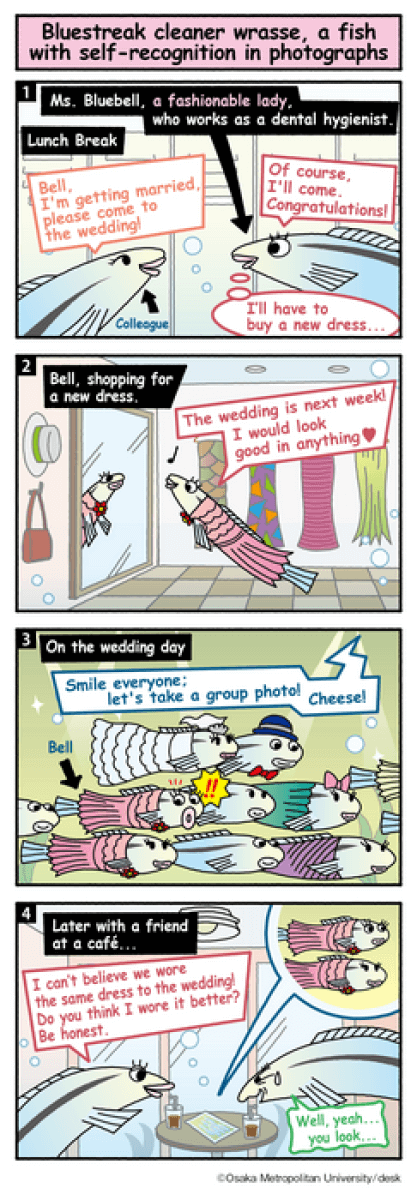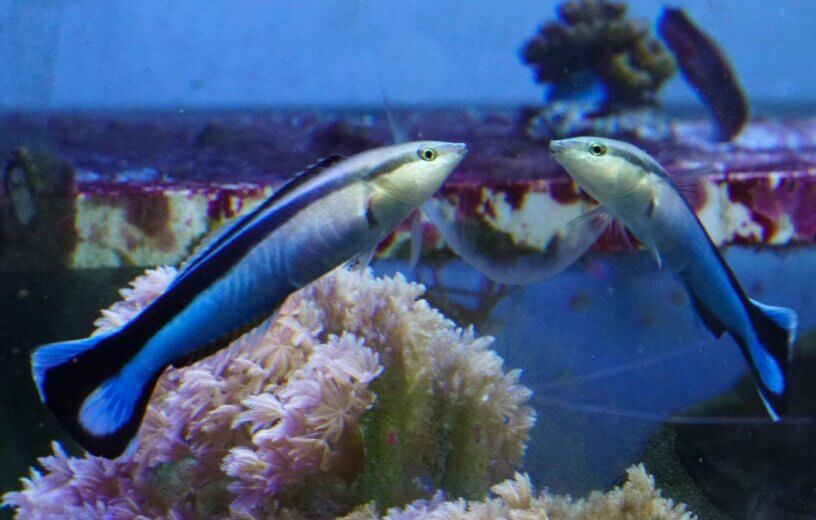OSAKA, Japan — Humans have always had a knack for a little bit of self-absorption. Who doesn’t want to walk in front of the mirror and think “I look good”? The importance placed on appearance by mankind has always been a distinctly human trait, unseen across any other non-human vertebrates. That is, until now. Groundbreaking new research has successfully documented that fish think “it’s me” upon seeing themselves in a picture.
This marks the first time ever such a feat has been observed by any vertebrate (species with a backbone) besides a human. Researchers add the most influential determining factor was not the fish seeing their own body but seeing their face.
More specifically, these experiments involved Labroides dimidiatus, often referred to as cleaner fish. These fish have long been known to recognize themselves in mirrors and routinely attack any unfamiliar cleaner fish who may infringe on their territory.
The fish were shown four photos: a regular photo of themselves, a photo of an unfamiliar cleaner, a photo of their own face on an unfamiliar cleaner’s body, and a photo of unfamiliar cleaner’s face on their own body. Crucially, the cleaner fish didn’t attack images of their own faces, but they did attack photos with the faces of unfamiliar cleaner fish. Taken together, study authors believe these results indicate the cleaner fish determined who was in the photograph based on facial features not bodies, which is not all that dissimilar to how humans operate.

Fish freak out when they see facial imperfections!
Researchers also tested to see if perhaps the cleaner fish were simply mistaking the images of themselves to be very close companions. This was accomplished through a photograph mark-test. The fish were shown an image depicting a parasite-like mark placed close to their throat. Six out of eight fish that saw the image of themselves with a parasite mark started to rub their throats so as to clean it off. However, when those same fish were show images of themselves without parasite marks, or of a familiar cleaner fish with parasite marks, they did not start rubbing their throats.
“This study is the first to demonstrate that fish have an internal sense of self. Since the target animal is a fish, this finding suggests that nearly all social vertebrates also have this higher sense of self,” concludes study co-author and Professor Masanori Kohda, from the Graduate School of Science at the Osaka Metropolitan University, in a media release.
The study is published in Proceedings of the National Academy of Sciences.

